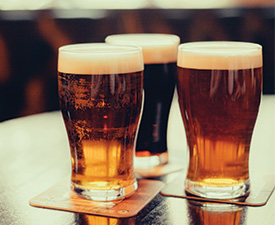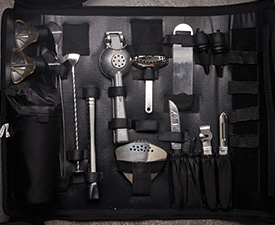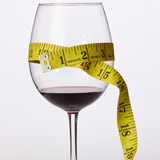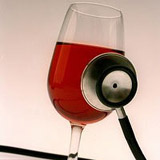When most people think carbohydrates, they think of foods that are starchy or drinks high in sugar content. Wine actually contains no starch and very little residual sugar. The natural sugar that occurs in grapes is converted to alcohol during the fermentation process. Technically there is no carbohydrates in wine, but what nutritionists and scientific researchers like to call 'carbohydrate equivalents'. These carbohydrate equivalents have to do with how the body metabolizes them.
Wine contains alcohol that is processed in liver. Your liver converts the alcohol into acetate, which is a type of fuel the body can use like carbohydrates, fat or protein. Your body burns the acetate first, before other fuels, turning it into energy before it ever gets a chance to turn into fat.
So while you may want to count carbohydrates with each glass of wine you drink, keep in mind that these carbohydrate equivalents, particularly in red wine, may actually lower your blood sugar, rather than sending it into a spike. People with diabetes should continue to count the carbohydrates in the wine as normal, because consuming too much may have an adverse affect on blood sugar levels. Wine contains no fat and no protein, but just about its entire not-insignificant calorie content is in the form of carbohydrates and alcohol, which is metabolized much like a carbohydrate.
Wines vary substantially depending on their alcoholic content and whether they have residual sugar, but a 150ml glass of dry white table wine may have 0.8 to 1.25 grams of carbs, while a similar serving of red wine may have 0.5 to 2.5 grams, and sweet dessert wines with their high sugar content will have substantially more, up to 10 grams in a 90ml serving - and in wines like Port.
If you're having a glass of wine with dinner, try to enjoy it for what it is and not part of any diet. I suggest a good moderate lifestyle of sensible eating (including wine) and exercise, and consult your physician for advice if you feel a need to adjust your diet.











